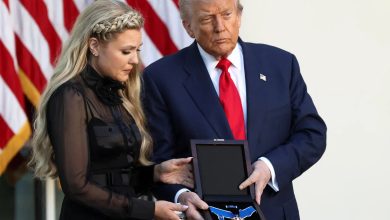Netanyahu Declares Victory as Israel Threatens New Strikes on Iran Despite Ceasefire
Netanyahu calls Israel’s fight with Iran a big win and warns against Iran rebuilding nukes.
Iran says it’s open to talks but won’t give up its right to peaceful nuclear energy.
Israeli Prime Minister Benjamin Netanyahu has declared a “historic victory” following a 12-day military escalation with Iran, vowing that Tehran will never acquire a nuclear weapon. Speaking in a national broadcast on Tuesday, June 24, Netanyahu reiterated that Israel remains committed to preventing Iran from reactivating its nuclear program and will respond forcefully to any attempt at rebuilding its damaged nuclear infrastructure.
The ceasefire, brokered after nearly two weeks of deadly cross-border strikes, came after intense international pressure and growing fears of a regional war. Netanyahu, however, maintained a hardline stance, stating, “Iran will not have a nuclear weapon. We have thwarted their program, and if they attempt to rebuild, we will respond with the same determination.”
Iran signals openness to talks, but stands firm on Nuclear rights
Iranian President Masoud Pezeshkian, in a separate nationwide address, indicated Tehran’s readiness to resume nuclear negotiations. However, he emphasized that Iran would not abandon what it describes as its “legitimate rights” to peaceful atomic energy. “We are ready to talk,” Pezeshkian said, “but we will not compromise on our sovereign right to nuclear development for peaceful purposes.”
Tensions soared after U.S. forces intervened on Sunday, June 22, launching a targeted strike on Iran’s underground nuclear facilities using advanced bunker-buster bomb capabilities not available to Israel. The U.S. attacks reportedly hit three major sites in Fordow, Natanz, and Isfahan.
U.S. role and truce mediation
The United States’ involvement marked a turning point in the conflict. Following Iran’s retaliatory missile strike on a U.S. military base in Qatar, President Donald Trump stepped in to broker a ceasefire agreement. In remarks after the truce, Trump confirmed that U.S. warplanes had exited Iranian airspace and emphasized the need to de-escalate hostilities.
Still, Trump voiced strong support for Israel’s position, insisting, “Iran cannot have a nuclear weapon.” He criticized Tehran for escalating the conflict instead of returning to the nuclear deal framework. Trump further warned that the conflict was “a waste of human life” and that Iran’s leadership was leading the country down a dangerous path.
Rising casualties and regional fallout
The 12-day conflict has resulted in significant human and material losses on both sides. Iranian authorities report that over 400 people were killed, and more than 3,000 were wounded in what they describe as a U.S.-backed Israeli offensive. On the Israeli side, official sources reported at least 24 deaths resulting from Iranian missile strikes.
Despite the truce, hostilities have not fully ceased. Israeli strikes have continued to target Iranian military and nuclear-related infrastructure, while Iran has responded by deploying drones into Israeli territory. The ongoing skirmishes raise questions about the durability of the ceasefire and the potential for renewed escalation.
Meanwhile, global financial markets reacted positively to news of the ceasefire. Oil prices, which had spiked during the height of the conflict, began to stabilize as investors grew optimistic that further escalation could be avoided. Stock markets rallied modestly, reflecting hope that tensions in the Middle East might not derail global economic recovery.
Israel Holds Firm on Iran Nuclear Threat
Netanyahu’s latest comments reaffirm Israel’s longstanding position: that Iran must be denied nuclear capability at all costs. The Israeli leader’s warning that any reconstruction of Iran’s nuclear program would be “met with similar aggression” signals that the conflict may be paused, but is far from resolved.
As regional and global powers assess the aftermath, diplomatic channels are expected to intensify in the coming weeks to prevent a renewed outbreak of war. Still, with entrenched positions on both sides and deep mistrust, a lasting peace remains elusive.



